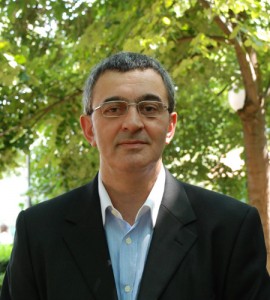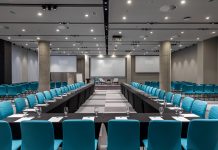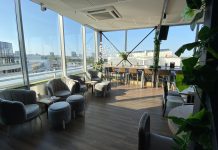 If you want it, you can do it…
If you want it, you can do it…
As opposed to what I am going to write about, which relates to the numerous other events that are organized in the whole country, the Universiade was supported as a world-class event by the City of Belgrade and the Republic of Serbia, with all their capacities – in the literal sense of the word – both organisationally and financially, with the primary goal to promote a “normal” Serbia the world had almost forgotten.
The fact that a large number of foreign guests left Serbia with the most beautiful impressions (which was, apart from winning medals, one of the most important goals) raises the question of how other guests, who arrive from all over the world during the year to stay in Serbia for various reasons, perceive Serbia. The issue of their stay and their perception of Serbia is considered to fall into the domain of “Serbian Meetings Tourism”.
Regulating the work of event organizers?
Who takes care about the quality of these events, if we keep in mind that they are held continuously over the whole year? Are organisational boards, sports unions, state institutions, local self-governments charged with this task? What is the standard of the delivered services at such events? There are some good, but rare examples of successfully organised events and sometimes also professional organizers are included, but this is just a small number. For, as soon as you leave the capital and a couple of larger towns in Serbia, the people of “good will” start to dominate, who unfortunately, except for their good will and wish to succeed, do not possess many professional skills and knowledge.
The proposal to amend the Law on Tourism, for which I lobby herewith, could urge the preparation of some guidelines and the drafting of regulations related to the following issues: WHO, WHEN, under which conditions and with what necessary qualifications can be hired to organise and bring into life such events in Serbia?
The existing improved Law on Tourism specifies in detail, within the domain of tourism agencies, all kinds of organised group travelling in the country and abroad, with the effect that (without any intention to condemn anybody) tourists who have been travelling for several years to Paralia and Kusadasi do not have to worry anymore about the level of rendered services and about the protection of their own rights. However, within these amendments to the Law on Tourism, nobody thought, probably by mistake, about passing some regulations that would regulate the organisation of events and accommodation for people who visit sports events and expert meetings in Serbia, no matter whether these visitors come from within the country or from abroad. This sector, which is very significant for the Serbian tourism and in which there are no “LAST MINUTE” offers (one of the favourite sentences of an average Serbian tourist already at the beginning of the season, in May) remains completely unregulated. This makes me firmly believe that all persons engaged in the meetings organisation business have to cope every day with a completely disloyal competition of convention, conference and expert meetings’ organizers.
Everyone thinks they know how to organise a convention
For years already we have all been asking ourselves why guests from abroad, during their stay for conventions and similar events, keep getting – despite very intensive hard work of the organizers – bad impressions about Serbia as a land of unarticulated state and bad organization. While reflecting on the possible causes for this, we often neglect the fact that such inadequate, good-minded hosts are often people from various fields of business activities who mostly do not have experience and knowledge in the field of providing tourism services.
As one of the best arguments I dare to bring out an analogy from the field of medicine. Imagine a similar situation where everybody who had a pressure gauge and a personal affinity towards providing medical services could engage freely in controlling the blood pressure of his/her fellow citizens!
Of course, a permit for such activities can be given only if the following “strict conditions” are fulfilled:
– The person in question has some spare time, this person loves medicine unconditionally and he/she will also have some benefit from these services (which is most often the background of all “altruistic” approaches).
Are these the criteria according to which we want to function?
Apart from sports events, meetings of medical and technical experts are, together with education experts’ meetings, the largest in number – if we take the frequency of organised events as a criterion – and the largest number of these events is organised by employees of local self-governments, by sports workers of all colours, teaching personnel, but also physicians, nurses and others. They do this with one single argument: “they have already organized and led successfully many similar events”, so that, thus, “they have learned everything from the real practice”, which leads them to the conclusion that “they do not need anybody else” to organize the events.
If they additionally carry subconsciously the memory of how they earned nicely during the organization of similar events, nobody wants to change the model anymore, the model that has its roots in the original organising activities for pupils’ and students’ dances in the socialism period, back at a time when they would receive the nice opportunity to do some socially useful work and earn some money by doing this. Such a “retro” working model for the organisation of events has been kept for 30 years at the level of partisan-scouts gatherings. We need not discuss it in detail – the title of this text itself (“We spik English”), took from one “info desk” of a similar event, says it all…
Introducing rules and order?
After the Convention Bureau of Serbia had been formed and when it recovered its health after the initial children’s diseases of its start-up phase, it started expanding its activities of promoting Serbia as a destination for conventions, gradually becoming more and more successful at it. Now that it has established its work, I think it is about time to stop all organizers-operators where “volunteers” chosen by the sample method (caretakers and employees from all fields of activities) meet guests, provide tourism services, and where students from catering schools make coffee and attend upon guests with cocktails. Very often, the “convention rooms”, in which such meetings take place, do not fulfil even the most elementary hygienic (not to mention technical) conditions. Pre- and post-convention social activities are mainly reduced to restaurant gatherings with a tradition of overeating, accompanied by musical performances of the worst taste.
Of course, there’s no accounting for taste, but here we deal with one organisational level that, although one has to commend the success in reaffirming the Serbian spirit, does not correspond to Guča or to folklore meetings. Furthermore, the state of the art urges one to discuss the situation and to request from the responsible ministry to introduce order and rules in this field (as with the introduction of fiscal cash registers to regulate payments) and to regulate thereby the organisation of events that most often function according to the universal principle: “Improvise without any order and rules and everybody shall feel free to act spontaneously….”
Improvisation is allowed in this field, but on the other hand the same modernised Law on Tourism strictly foresees that if tourism agencies lead organised tours of guests from Serbia to foreign countries, they have to fulfil highly demanding requirements: specific education of their employees, guarantees for good performance and indemnification for passengers. All of these – besides a must-be-membership in national and international professional associations – give passengers very secure guarantees, while at the same time the enormous amount of guests participating in meetings in Serbia receive services from people who are not competent to provide such services, people without any experience, who, except for a personal affinity towards the organisation of such meetings, mostly are not acquainted with organisational issues.
It is high time for this to be stopped by passing legislation that would regulate the organisation of such events, as well as other tourism sectors. The effects of these measures, the introduction of which would bear no costs for the state, would – if nothing else – at least lead to an improved level of rendered services, and – by setting equal conditions for everybody – also stop the unfair competition.
Support – and in what kind of form?
Legal regulations in this important tourism sector would also guarantee the strengthening of the position of qualified domestic agencies (if this is wished for), because our hoteliers would, through the application of the law – if not otherwise – be compelled to respect the order and raise their cooperation to a partner level, at least only for such events, the amount of which is not small. Thus, clear and fair rules should be introduced into this game.
As to the support that should be offered to agencies that organise conventions and to marketing agencies, the model of strengthening positions would also result in the promotion of Serbia as a meetings destination, even for those agencies that operate outside of the administrative centre of Serbia, or, as we call it, ‘the area of the southern railway”. In this part of the Serbian territory, except for the things done by the Tourism Organization of Serbia (TOS), the Convention Bureau and USAID, every other help and cooperation comes down to just a verbal support manifested in a shoulder pat and wishing nice wishes for success with the further work.
In this way, I want to turn the attention of the responsible persons from the competent ministries to the fact that they must implement the idea of developing meetings tourism on the whole territory of Serbia, and not only within the official institutions of the system, as well as to the fact that this area needs urgent, immediate, concrete and strong support – if in no other way – then by enacting regulations and building thereby strong pillars for latter order, as in the case of regulating illegal construction buildings.
In this sense, hereby I use the opportunity to remind the responsible authorities from all competent institutions that promote tourism and events that there exists a 3 P model (public private partnerships), and also to emphasise that such joint activities cannot infect them with a heavy contagious disease (if somebody wrongly taught them that these activities have such a negative impact). I do not want to forget to mention The Best Solutions and their web site, as well as their catalogue, where they present, on a regular basis, the whole offer of the meetings industry of Serbia at all important meetings industry fairs in the region. Such an initiative, brought into being without any support from state institutions, is oriented towards promoting and presenting the meetings capacities of Serbia, as well the country itself as a meetings destination. With this unique magazine in Serbia, Business Travel & Meetings, which you are now holding in your hands, this activity is now entering a mature stage.
Tolerant, multicultural town … birth town of emperors and roman rulers…
I hope that the readers of this text won’t mind if I take a look back on the history of my own town, which now, with its failed economy, does not have its own space for conventions in the 21st century. And yet, it is considered to be the cultural, scientific and administrative centre of the region, which has more than 2.5 million inhabitants.
The tourism of the town of Niš is older than all of us – the first “tourism organisation” of Niš Karavan-Saraj was established here – you won’t believe – back in the far 1516! People visited this resort with food and drinks back at that time even from Belgrade, not by booking beds via internet, but by engaging the first local transportation enterprise, Arabadžijska kompanija Niš.
In ancient times, in the 8th century B.C., Niš was lying on the border between the Illyrians and the Thracians! Only five centuries later the Celts defeated the Illyrians, took the city and gave it its present name – Naisa. There is no doubt that the city of Niš is the place where exactly 1736 years ago Flavius Valerius Constantius was born. This famous inhabitant of Niš – ruler, statesman and religious leader – belongs to the most important group of people who quintessentially changed the faith of Europe and of the whole world. Through reforms they strengthened the Roman Empire, which was torn by a crisis at the end of the 3rd century and embraced the Christians (until then a persecuted minority). This is when the Christianisation of the Empire began. By building “The Eastern Rome”, Constantinople, he created the foundation pillars for the future Eastern Empire, Byzantine!
It seems like a paradox that Europe, which was literally created on the spot where my town lies now, today considers whether or not it wants to accept us, so pitiful and tortured during the 20th century, as a part of it?
Only in such a town, the always tolerant and multicultural Niš, was it possible for Constantius Chlorus, Roman officer of high rank, to marry the beautiful Helena, daughter of an inn-keeper, and have their son Constantine the Great born, the “equal-to-the-apostles emperor”.
While doing my research, I also found that, in the second century of the new era, Ptolomaeus of Alexandria mentioned Naissus in his capital work “Geography” as “a place worth to dwell in”. At that time it was worth to stay in it, and now we are fighting to survive in it.
Perhaps it would be better if I suppressed the fact that at least several more Roman emperors and rulers (Constans, Constantius, Vetronian, Julian, Valens, Valentinian…) were born in this town, without making it sound like boasting about the town of Niš?!
The biography of my birth town shows that it was the town’s destiny to mark the true border between East and West. For the Western world, Niš belonged to the East, and vice versa.
More than a hundred years ago, Niš proved here its cosmopolitical spirit: next to each other stood the hotels “New York” and “Orient”, then logically “Sindjelić”[1], then the noblesse pub “Šuman” and, as the last in this range of pubs, “Kod Djoke”[2], which didn’t seem to bother anybody in Niš.
Opportunity for 2013?
I mentioned all these historical facts in the hope that my voice could turn into a warning for the authorities, reminding them that in 2013, the whole Christian world will celebrate 1700 years from the Edict of Milan, which is considered to be the official acknowledgement of Christianity as an equal religion among others. Naissus played here undoubtedly an enormous role.
The Roman authorities needed several decades to officially recognize the Christians after constantly persecuting them, so that I am afraid that we will also need to spend so much time to organise, when we finally establish organisation boards, the celebration of this jubilee that belongs equally to all of us, with all the unnecessary polemics about who and when shall organise this festivity. This shall lead us to loosing precious time, while emperor’s towns like York, Trier, Arles, Milan, Rome and Cordoba are already bringing to a close the organisation of pompous celebrations of this unique historical event and are expecting with reason thousands of guests and tourists.
[1] a typically Serbian name. – translator’s note.
[2] also typically Serbian, indicating familiar, warm domestic athmosphere. – translator’s note.



































 Srpski
Srpski English
English